Michael Saylor: How does a Bitcoin strategy not be liquidated?
Written by Steven Ehrlich
Compiled by: Saoirse, Foresight News
Strategy (MSTR) Chairman Michael Saylor earned widespread praise from the investment community on Friday for his company posting record highs in operating income, net profit, and earnings per share in the last quarter (see chart below).
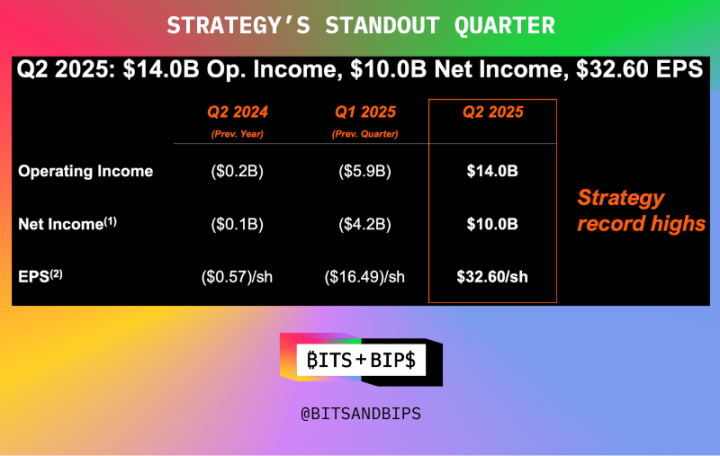
In fact, the company's stock price has risen 166% over the past year, double that of Bitcoin (BTC) during the same period.
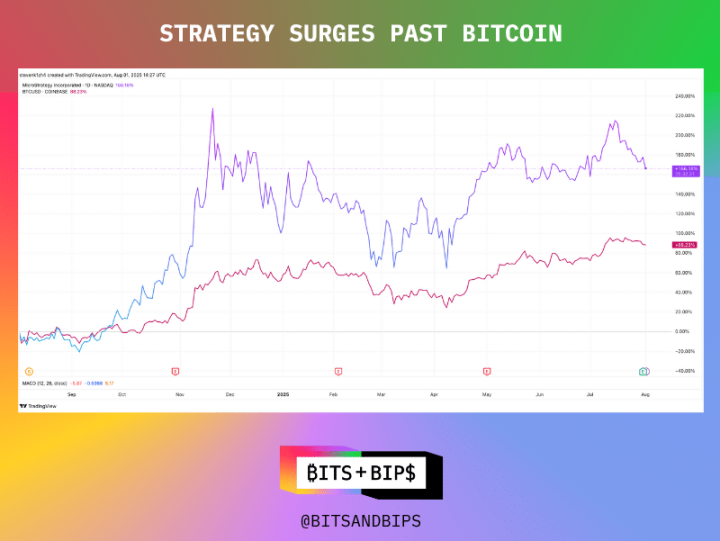
(Trading View)
By any measure, such performance is outstanding. Especially in the context of the influx of many imitators and the possible diversion of investors' funds, such a performance is even more rare.
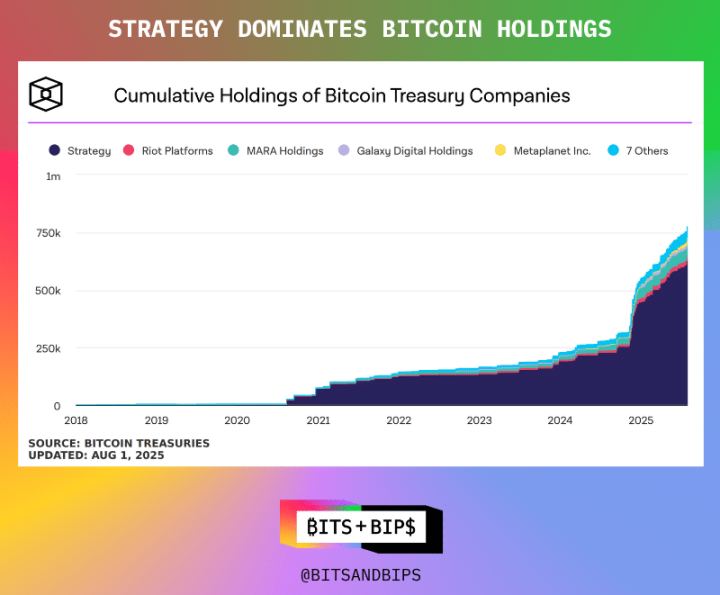
But that doesn't mean Strategy can rest on its stuff. As a leader in cryptocurrency money management, it holds certain privileges, and now it seems poised to take full advantage of it.
Bitcoin reserves continue to increase, but there are new changes in strategy
At the time of writing, Strategy holds 628,791 Bitcoins, worth $71.9 billion. The company has built up this portfolio in a variety of ways: by issuing common stock, multiple types of preferred stock that can provide dividends or conversion rights in future years, and convertible bonds. The specific details of each type of preferred stock are shown in the figure below.
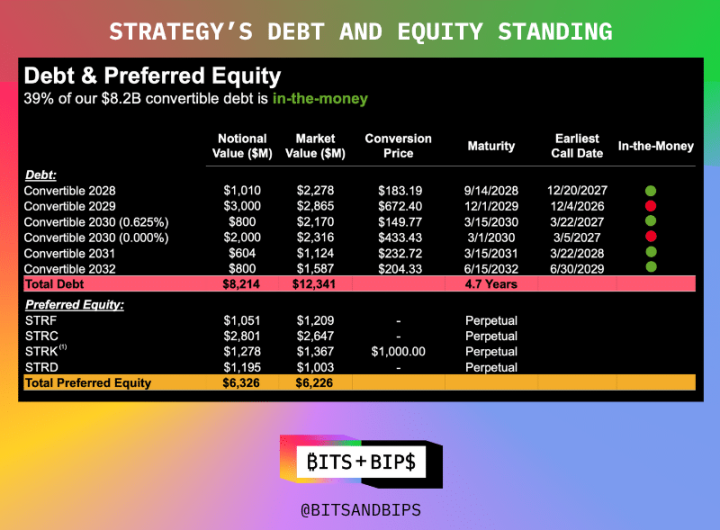
But now, the company plans to make a major adjustment to its financing approach – specifically, to get rid of debt altogether. Despite its strong asset-liability performance ($126 billion in corporate value and only $8.2 billion in debt, according to the financial report), the company wants to reduce debt to zero. During an investor conference call following the July 31 earnings call, the company announced plans to redeem its outstanding convertible bonds and instead focus on issuing preferred shares in multiple tranches.
This means that its $6.3 billion preferred stock offering is expected to grow significantly. In fact, at the investor briefing, the company announced plans to refinance $4.2 billion through its latest preferred equity product, Stretch (STRC), which has a target monthly yield of 10%.
"This decision reflects the healthy development of Strategy's capital market financing capabilities. The convertible bond market is flooded with hedge funds and arbitrageurs who build long positions in Strategy by buying convertible bonds, but at the same time reduce their net risk exposure by shorting a large number of stocks (about 25%). In other words, they sell a lot of stock for every bond they buy, and they're really just mildly bullish on Strategy," TD Cowen managing director Lance Vitanza said in an interview with Unchained (the full discussion can be viewed on X or YouTube). "A few years ago, convertible bonds were the best financing channel for companies. But with the development of Strategy, they have been able to enter the preferred stock market, where the terms are better, the potential for appreciation is greater, and the pricing efficiency is higher."
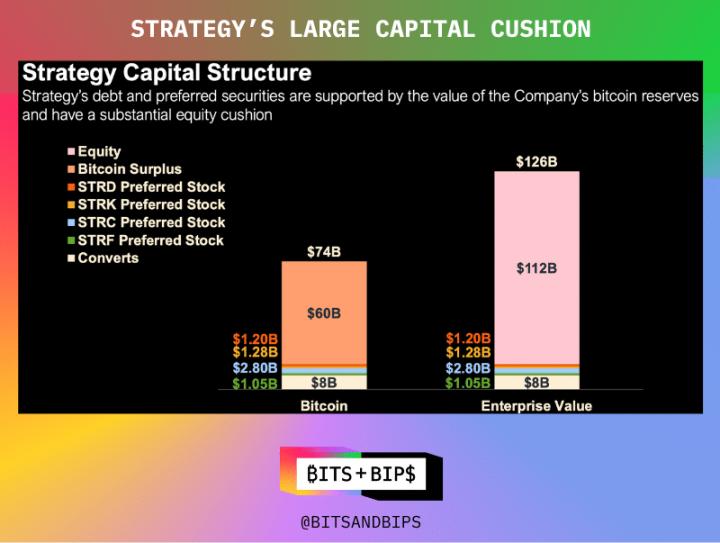
This move once again confirms why Saylor is regarded as a "demigod" in the Bitcoin community - he is not only highly regarded for hoarding Bitcoin but also respected for his responsible operation. With a few exceptions, he almost never financed with leverage, relying primarily on the equity market.
Although its robust capital structure has been able to avoid forced liquidations (unless Bitcoin's price plummets by more than 80%), Saylor continues to push the limits.
It has always been imitated, never surpassed
But don't expect the many followers in Bitcoin, ETH, SOL, BNB, and more to follow suit. These institutions are just getting started, and as I have noted in other related reports, they are rushing to scale up quickly through competition.
This means they use all the tools of the capital markets: private financing (PIPEs), lines of credit, and of course, debt.
I have written in previous reports: "Each approach has its pros and cons. Private financing can raise a large amount of capital in a short period of time, which can help kickstart a reserve strategy, but it can create huge selling pressure. Issuers may also choose to register their shares with the SEC before issuing them, but with a longer funding cycle. More companies are now adopting a hybrid model: one-third of the funds come from private financing, and the rest are raised through convertible bonds or credit facilities. This method can delay selling pressure, but it will increase the leverage of the balance sheet, which can cause problems if the price plummets."
This means that debt is practical when financing: shareholder dilution may not be visible until years later, and in the current bubble market, coupon rates are almost zero. For example, Bitcoin treasury manager Twenty One raised $485 million in May by issuing convertible bonds to kickstart its strategy; Anthony Pompliano raised $235 million in convertible bonds for his Bitcoin treasury manager, ProCap Financial, in June.
This is essentially a "buy now, pay later" model.
A unique existence
For investors, this means keeping in mind that Strategy is still a unicorn in today's crowded crypto money management space. Currently, it is the only company that has access to the preferred stock market. Its first preferred share offering was in January this year, and the scale of future issuance will be greatly expanded.
For other companies, entering the preferred equity market and eliminating debt remains just a vision. "Most of these companies will start out in the convertible bond market and hopefully some of them will grow and eventually qualify for the preferred market," Vitanza said.
